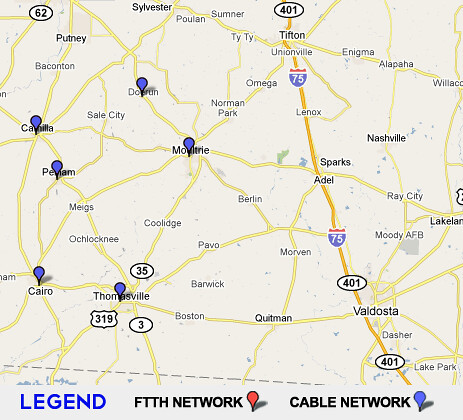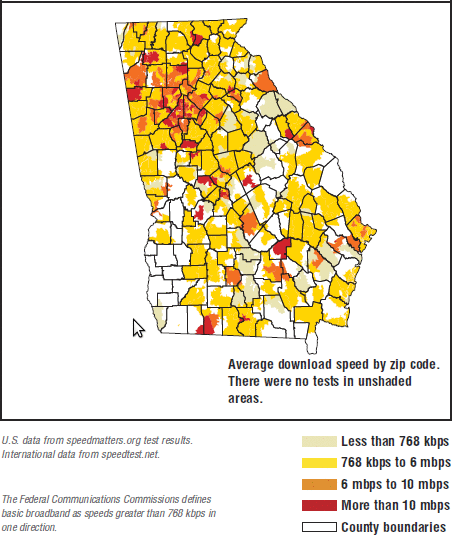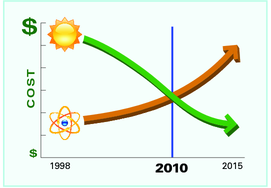Such publicly owned networks can offer services that incumbents don’t, such as the 1Gbps fiber network in Chattanooga, Tennessee, run by the government-owned electric power board. And they sometimes have more incentive to reach every resident, even in surrounding rural areas, in ways that might not make sense for a profit-focused company.According to this map of Community Broadband Networks by the Institute for Local Self-Reliance, quite a few small cities in south Georgia have municipal cable networks:
All three of Moultrie, Thomasville, and Cairo use CNS, whose brochure for Moultrie says you can get:
| Downstream | Upstream | Monthly Cost |
|---|---|---|
| 5 Mbps | 1 Mbps | $29.95 |
| 12 Mbps | 2 Mbps | $35.95 |
| 22 Mbps | 3 Mbps | $49.95 |
If Moultrie, Thomasville, and Cairo, and yes, Doerun can do this, why can’t Valdosta and Hahira?
And then how about add on a wireless network to reach the rest of us rural folk?
Maybe then we wouldn’t be the Internet backwoods.
-jsq


